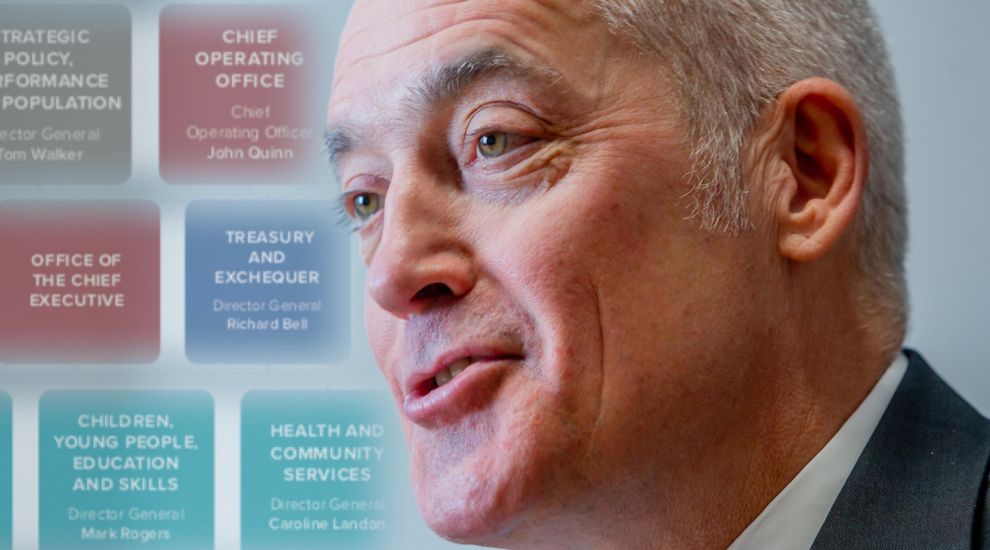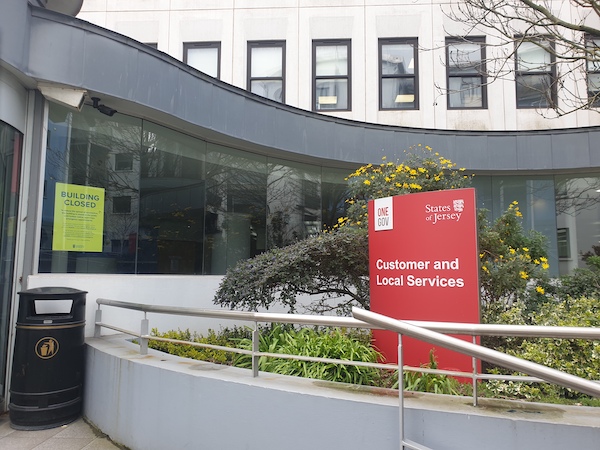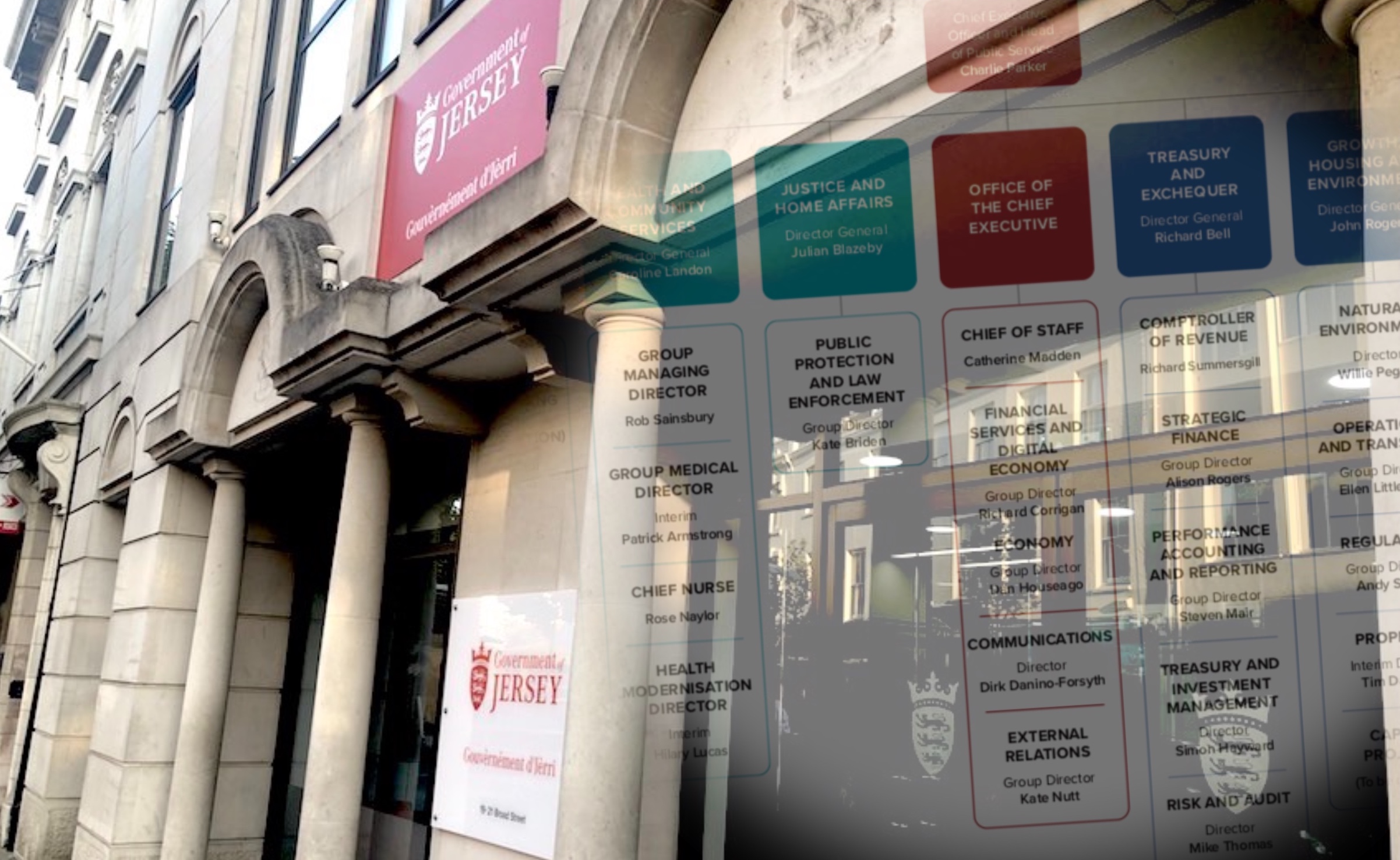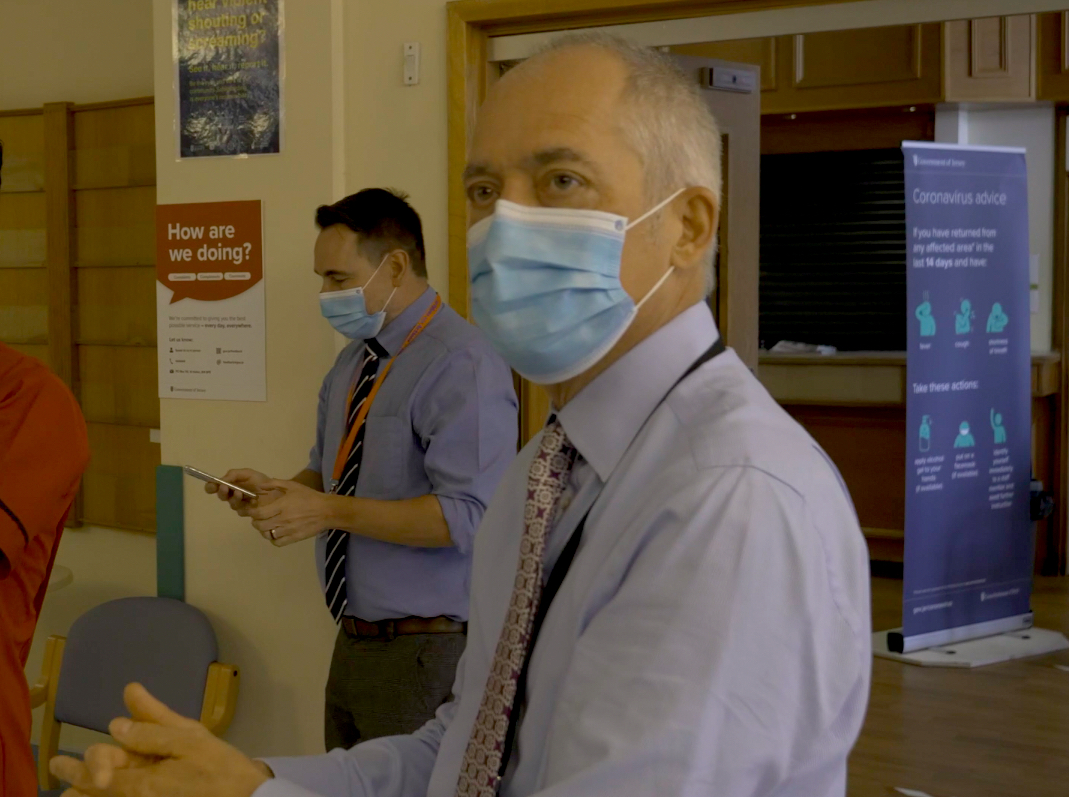


The latest report on the performance of Jersey’s Chief Executive has shown that, nearly three years into his role, he still has a way to go in winning the approval of colleagues and convincing them on the benefits of ‘OneGov’.
Published yesterday, the report aims to assess how Charlie Parker has performed against six general objectives set by the Chief Minister relating to the ‘modernisation’ of Government.
Mr Parker’s contract states that he will gain residential qualifications upon five years of “satisfactory performance in his role.”
The review of 2019 - put together by Dr John Nicholson, who Express revealed previously worked with Mr Parker during his time as CEO of the London Borough of Westminster - praising him for “an impressive record of delivery against performance targets in most areas.”
It added that any unmet targets were down to “external factors or shortfalls in resource, which could not have been anticipated.”
Among the key ‘wins’ for Mr Parker identified in the report was his work in putting together the Government Plan and the Efficiencies Plan, which explained how the Government intended to save £100m over four years, which passed in a States Assembly vote with few amendments.
He was similarly praised for the early closing of the 2019 accounts, and the creation of Customer and Local Services (CLS) at La Motte Street - a new hub for all face-to-face interactions between members of the public and Government.

Pictured: The creation of CLS was highlighted in the report.
However, the report reveals how many of his colleagues are still yet to be convinced on the benefits of the OneGov regime - the most radical overhaul Jersey’s public sector had ever seen.
Enacting that change saw the departure of many staff and the entry of many new interims - which, the report explained, stoked tensions between “newcomers and old-hands” in 2018.
The report explained: “At a personal level, those who had served under the previous Chief Executive had been through a tough assessment procedure, which had led to the exit of some of their colleagues. Some of them were experiencing feelings of guilt which are symptomatic of the ‘survivor syndrome’. Some of them also felt resentment at the appointment of (a few) off-islanders to senior posts. The newcomers could sense this, as they adapted to life in Jersey. The pressure of everyday business, combined with the launch of an ambitious programme of transformational change, created a level of busyness very few had experienced before. It also restricted the time available to build a cohesive team, which could exemplify the new values and ways of working – collectively and as individuals.”
But Dr Nicholson said that many of those “divisions which had hampered progress… dissipated within 2019.”
The report went on to state that staff attitudes towards the OneGov regime were now, largely, more positive.
Nonetheless, many quotes from anonymous staff members, States Members and industry heads suggested that many felt that they were yet to see the benefits of the shake-up and the investment that had gone alongside it.
One of Mr Parker’s stated aims of the OneGov overhaul had been to reduce “silo mentalities” and get departments working more collaboratively.
One commenter noted, however: “Silos have been replaced by vacuums. It’s not clear which Ministers are responsible for what.”

Pictured: Some individuals said they were yet to be convinced of the benefits of the 'OneGov' changes.
Another expressed frustration that Target Operating Models - blueprints for the new ‘OneGov’ management structure - were not yet complete.
“We are now into Charlie’s third year and we are still talking about Target Operating Models. Some considerable time has slipped on the delivery of these within departments, very few are complete. I wonder how much harder this could have been driven to achieve the desired change over the desired time-period. It has had the effect of drawing out the uncertainty for staff. You obviously want to do something like this properly, but you also want to do it quickly.”
One person said that the benefits of all the change were perhaps only felt at the top, and weren’t visible throughout the organisation and to the public.
“Charlie made good progress with this in 2019, but I still think there is a sense of there being smoke and mirrors. Whilst those at a senior level inside the organisation can see the ways in which the organisation has changed and is changing, the narrative for those outside – including some non-ministerial politicians, the media and the public at large – is different. They are not necessarily seeing how this is all coming together. From my perspective, it’s coming together as fast as you could expect – but Charlie has had to do a huge amount of work to make that happen,” they explained.
In response to his last appraisal, the Chief Executive was tasked with playing more positive “mood music” to raise the morale of staff as they move through organisation changes. The 2018 appraisal had also seen staff speak of feelings of intimidation and pressure.
While the 2019 report said Mr Parker had taken this feedback into account, it noted that, “under pressure, the Chief Executive can still resort to referring back to what he inherited.”
“Last year, Charlie was in bullying mode. This year, he’s definitely had a new tone which has been very helpful, and he projects himself better,” one person said.
“There’s definitely been a change of mood music. Much less staff bashing. I really welcome this more complimentary style of management,” another added.
Some individuals still felt there was a way to go in improving his management technique, which was described in varied terms.
One individual said he was “a bit too laddish - backslapping, blokey”, while another noted: “Charlie’s door is always open, but people are relatively scared of him.”
Others, meanwhile, described him as “good at giving us credit with Ministers and at backing people” and praised him for being “professional and resilient.”
The Chief Minister welcomed the report, saying he was “very pleased” with it and that the island has coped well with the pandemic thanks to Mr Parker’s management.

Pictured: The Chief Minister said Jersey wouldn't have handled the pandemic as well without Mr Parker.
Next year’s report, Dr Nicholson said, will largely be focused on this topic.
He noted that it would involve a “lighter touch to performance measurement” and would call upon fewer witnesses.
Comments
Comments on this story express the views of the commentator only, not Bailiwick Publishing. We are unable to guarantee the accuracy of any of those comments.